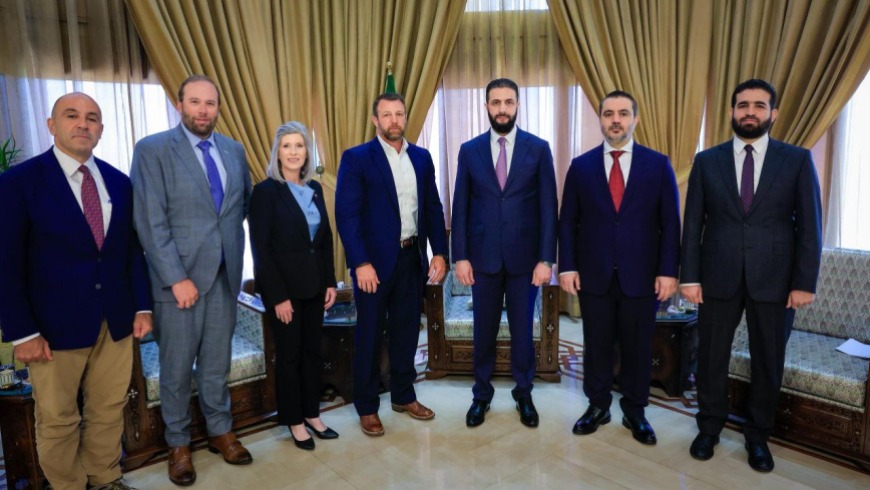The American Congressional Delegation Knocks on the Door of Shara in a New Step

The American delegation includes faces from both the Republican and Democratic parties, as if they are sending a message that the matter transcends partisan disagreements to a higher American interest. Senator Markwayne Mullin and Senator Joni Ernst, along with Representatives Jason Smith and Jimmy Panetta, came from under the Capitol dome to the heart of the Middle East, in a journey symbolizing a radical shift in American policy.
In diplomatic corridors, observers whispered that this visit was not mere coincidence, but rather the culmination of hidden efforts that began with the lifting of sanctions on Syria last May.
President Shara listened to his American guests as they spoke about the necessity of establishing permanent channels of communication. The discussions revolved around thorny issues: from missing Americans to security cooperation, from normalization with Israel to reconstruction. But between the lines, everyone understood that this visit represents an American acknowledgment that Syria is no longer that isolated country, but has become a key regional player in the new Middle Eastern equation.
In the background, there was a previous visit by American Congressman Ibrahim Hamada to Damascus ten days ago, which paved the way for this important meeting. It has become clear that Washington wants to redraw its relationship with Damascus, but the lingering question remains: Will this attempt succeed in overcoming the heavy legacy of the past, or will the burdens of history weigh down this new beginning?
Everyone in the region knows that this visit is not just an ordinary diplomatic protocol, but a signal that a new page has opened in American-Syrian relations. But as the Eastern proverb says: "The road to hell is paved with good intentions." Will this new seed bear fruit, or will the winds of international politics sweep it away before it grows?